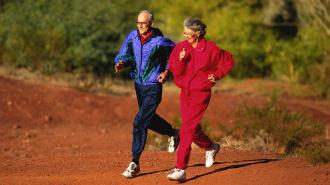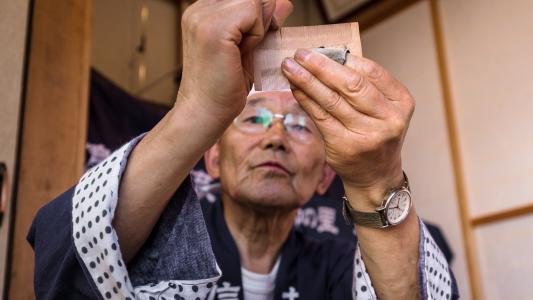About a quarter of American adults are physically inactive, getting no exercise whatsoever. And that unfortunate statistic progressively worsens as adults grow older: 25.4% for adults aged 50 to 64, 26.9% for those aged 65 to 74, and 35.3% for people aged 75 years and older.
Feeding this pernicious trend is a common exercise myth: namely, that it is for the young, and it’s typical — essentially inevitable — to move much less as you get older. But as Daniel Lieberman, a professor in the Department of Human Evolutionary Biology at Harvard University, recently stated in an interview with Big Think, this may be the most damaging exercise myth.
“I think the most pernicious, the most serious, the most problematic, the most concerning way in which we think about exercise in the Western world is that as people get older, it’s kind of normal to be less physically active,” he said.
Evolutionary biology’s take on exercise
Lieberman came to this conclusion looking through the lens of evolutionary biology. Historically, hunter-gatherers remained fit into old age because their lifestyle required that they move. Repeated walking, bending, lifting, and carrying didn’t degrade their muscles, as is often erroneously believed. To the contrary, the exercise maintained them. Elderly hunter-gatherers in the modern day tend to avoid the frailty that plagues adults in Western societies.
It’s a frailty that regularly spirals out of control, Lieberman said. “As people get older in the West, they tend to lose a lot of strength and power, and that makes basic tasks difficult. And when that happens, people become less active. When they become less active, they become less fit. And it kind of sets in motion a really disastrous, vicious cycle.”
Think about someone who falls from a lack of muscle coordination. This single trauma could derail an otherwise self-sufficient life, leading to a loss of autonomy, which can devolve into depression and listlessness.
Increasing your healthspan
Modern medicine, safer environments, and far better nutrition do keep people alive much longer, Lieberman adds. But these advances don’t necessarily make them physically healthier.
“Before modern medicine, what determined how long you lived was actually how long you were healthy, your ‘healthspan’,” he explained. “And what physical activity does is it increases your healthspan, and your healthspan therefore increases your lifespan.”
Thus, Lieberman recommends that people not cut back on exercise as they age, especially strength training, which is key to maintaining motor function and bone mass. Ideally, adults over age 60 should be lifting weights two to four times per week. Studies suggest that those starting a program in old age for the first time can actually experience proportional increases in muscle mass on par with younger adults.
Exercise can seem like a chore, but it pays off in saved time and money. According to the CDC, four of the five most costly chronic conditions among adults aged 50 or older — arthritis, stroke, heart disease, and diabetes — can be prevented or managed through physical activity. Working out is vastly preferable to a doctor’s visit, and far cheaper.
“The evidence is incontrovertible… Physical activity, as you get older, is more important, not less important, for preserving your health,” Lieberman concluded.
This article was reprinted with permission of Big Think, where it was originally published.






